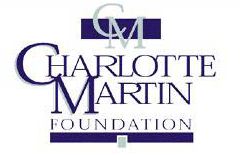The Charlotte Martin Foundation is a private, independent foundation dedicated to enriching the lives of youth in the areas of athletics, culture, and education and also to preserving and protecting wildlife and habitat. Our two areas of focus – youth and wildlife – were established by our founder, Charlotte Yeoman Martin, during her lifetime, and continue today as a legacy to her generosity.
Youth are the future. We need to encourage them to explore their passions and develop their skills through education, culture, and athletics and make strong and lasting contributions to the world. Active involvement in education, creating cultural experiences, and participation in athletic endeavors shapes a lifetime of learning.
Stewardship of wildlife and habitat is a fundamental responsibility. We need to preserve the resilience of our vital ecosystems in order to promote biodiversity and the protection of wildlife.
The Spring Grant Cycle will probably be the only cycle offered in 2021.
Grant GuidelinesLearn what we are looking for in programs that we fund
Our Core Principles:
we have further refined our focus in the following areas:
Increasing Opportunities for Minority Youth:Increasing racial equity and diversity for youth ages 6-18.
Minority led nonprofit organizations with diverse leadership and staff are the focus of our grant-making. Organizations based in rural communities are also a priority for our foundation in 2019.
Programs that create opportunities in areas of education, cultural expression and athletics. Including but not limited to:
Promoting Biodiversity in a Changing Climate:Conservation efforts that utilize the impacts of climate change when selecting areas for protection.
Engaging a community of citizens, scientists, and conservationists in educating the public about biodiversity and climate change.
Restoring important lands for biodiversity, focal species, and landscape connectivity. Including but not limited to:
Our Core Principles:
- Relevance: We continually seek information regarding significant opportunities in our region and in our focus areas to ensure that we are responding to current needs and opportunities.
- Community Engagement: We seek to foster community engagement in protecting wildlife and habitat and in engaging youth skills to build directly on community needs and strengths.
- Focus on Place: Grounded in the Northwest, we fund in urban, rural and tribal communities in Alaska, Idaho, Montana, Oregon and Washington where people work to improve the places that they live.
- Expand Opportunity: We give special consideration in our grant making to benefit and expand opportunities for underserved populations in our region.
we have further refined our focus in the following areas:
Increasing Opportunities for Minority Youth:Increasing racial equity and diversity for youth ages 6-18.
Minority led nonprofit organizations with diverse leadership and staff are the focus of our grant-making. Organizations based in rural communities are also a priority for our foundation in 2019.
Programs that create opportunities in areas of education, cultural expression and athletics. Including but not limited to:
- Increase access to and the creation of diverse cultural experiences.
- Improve school-based and out-of-school learning opportunities in areas such as science, technology, engineering, arts, and math (STEAM) and other areas.
- Increase early college awareness and access to post-secondary education.
- Increase access to sports and diversify sports programs.
Promoting Biodiversity in a Changing Climate:Conservation efforts that utilize the impacts of climate change when selecting areas for protection.
Engaging a community of citizens, scientists, and conservationists in educating the public about biodiversity and climate change.
Restoring important lands for biodiversity, focal species, and landscape connectivity. Including but not limited to:
- Assessments to identify species and communities at risk, including strategies to work toward ecosystem resilience.
- Identification of barriers to migration and mitigation measures to enhance landscape connectivity.
- Adaptive restoration strategies based on predicted species range expansion and contraction.
- Promoting the biodiversity of the marine and freshwater environments.

